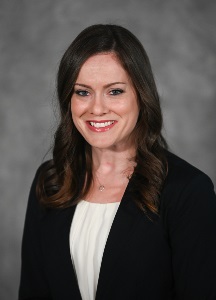Many Appalachian Teens Feel Lack of Control over College Access, Study Suggests
Sep 28, 2023
Alexandria, Va. (September 27, 2023) — High school students in poor, rural Appalachian areas face several obstacles in attaining a college education. One of those impediments may be their own sense of powerlessness over their academic futures, according to new research in The Career Development Quarterly, a journal of the American Counseling Association.
Appalachian students whose parents have no college education are particularly prone to believing they lack command over their higher-education prospects, the study at the University of Tennessee, Knoxville, shows. They may believe they can’t afford to attend the college of their choice, switch majors or transfer to another school if they want.
“Students’ sense of control over or volition in the college-going process may be a key factor in understanding their access to postsecondary education,” the researchers wrote.

Researchers Danielle L. Graham, PhD; Erin E. Hardin, PhD; and Melinda M. Gibbons, PhD, used a version of a tool originally used to gauge an individual’s sense of control over their careers. They used a modified version of the tool to test its utility with high school students.
The researchers surveyed 452 high school sophomores, juniors and seniors in areas that government agencies label as economically distressed. They used questionnaires designed to assess the students’ confidence in their ability to enroll in and complete college and their perceptions of financial and logistical barriers to a college education. They also asked students to rate their agreement with statements ranging from “I feel total control of my choices regarding college” to “Due to my financial situation, I will need to pursue any college option I can find.”
They found that students who felt the most control over their college options were also the most confident in their ability to get into and complete school. But prospective first-generation college students reported a lower sense of control over their college choices compared with students with at least one college-educated parent. Students whose parents lack a college degree tend to live in relatively lower-income households, enter the workforce upon graduating from high school, and doubt their ability to attend college, previous research has shown.
“Thus, we conclude that volition is not just another way of perceiving [lack of] barrier, but an additional influence on how students feel about the prospect of going to college,” the researchers wrote.
They caution that many of the survey participants had attended a program designed to change perceptions about college enrollment. However, they were unable to identify those students, nor account for the influence of that intervention.
The findings signal that counselors might consider addressing students’ sense of control over their futures when advising them about college, the authors said. Those conversations may help students feel empowered to access meaningful education and careers, they added.
NOTE TO JOURNALISTS: To get a copy of the article, “Conceptualizing college-going volition in rural Appalachian high school students,” or to schedule an interview with the authors, please contact news@counseling.org.
Founded in 1952, the American Counseling Association (ACA) is a not-for-profit, professional and educational organization that is dedicated to the growth and enhancement of the counseling profession. ACA represents nearly 60,000 members and is the world’s largest association exclusively representing professional counselors in various practice settings. Driven by the belief that all people can benefit from the power of counseling, ACA’s mission is to promote the professional development of counselors, advocate for counselors, and ensure that ethical, culturally inclusive practices protect our members’ clients and all people who seek counseling services.
